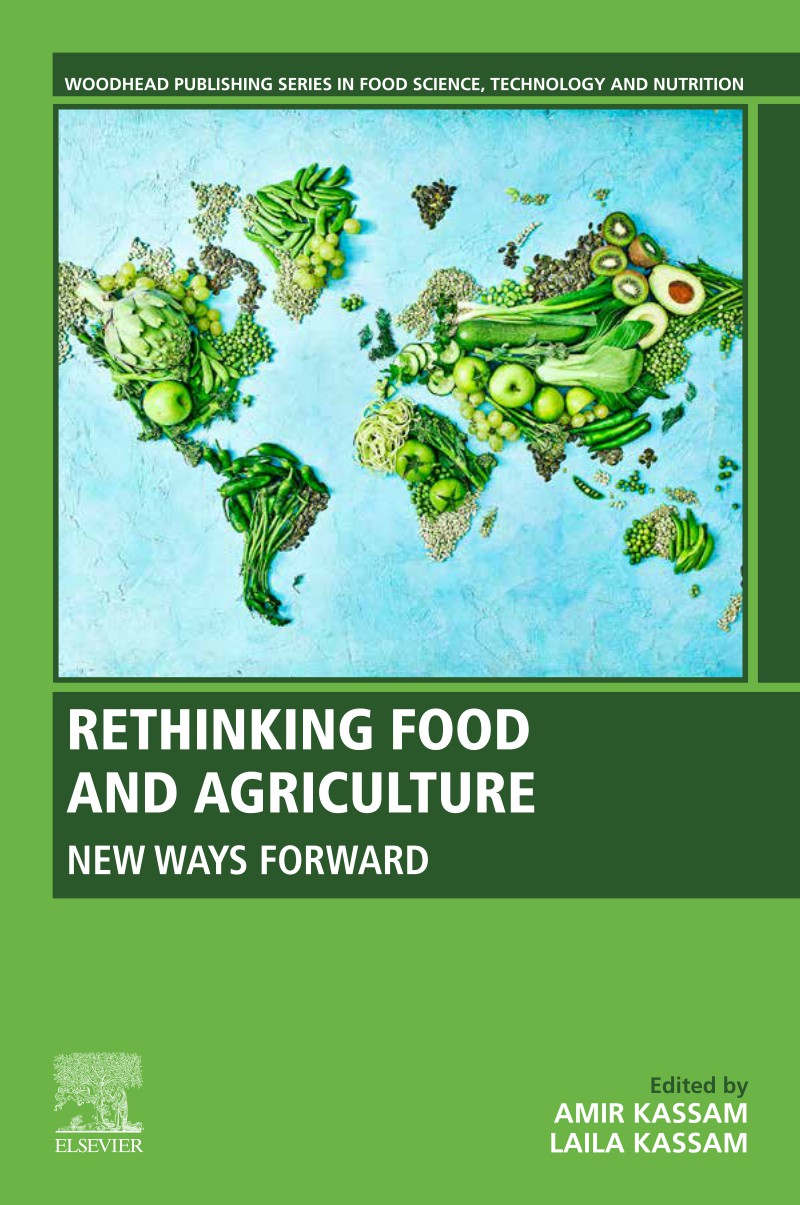It may be surprising to see agriculture being held responsible for many of the perils that mankind has brought upon itself and the planet. The editors’ aim is to reassess and reimagine the food system. In their own words, this requires ‘uncovering the historical, ethical, eco- nomic, social, cultural, political and structural drivers and root causes of unsustainability, degradation of the agricultural environment, destruction of nature, shortcomings in science and knowledge systems, inequality, hunger and food insecurity, and disharmony’ and, also, ‘past and present efforts towards sustainable development, including food security and production, and whether these efforts have been and/or are being implemented with adequate cultural responsibility, acceptable societal and environmental costs, and optimal engagement to secure sustainability, equity, and justice for all throughout the whole system.’
Knowing that everything is connected to everything else and appreciating the place and responsibility of Society, the editors draw upon keen observation of the operations of agriculture in the field and upon social and environmental justice movements to elaborate the concept of inclusive responsibility as a philosophical foundation for a better food system. Their concept encompasses agro-ecological sustainability based on planetary boundaries; valuing quality of life, biocultural diversity, equity and social justice; and the health, well- being, sovereignty, dignity and rights of farmers, consumers and other stakeholders, as well as of nonhuman animals and the natural world.
The first three chapters examine the historical and philosophical roots of our present predicament. In Setting innovation free in agriculture, Rupert Sheldrake criticises the prodi- gious investment in molecular biology but his real target is reductionist or Newtonian science. It has the advantage of being amenable to observation, measurement and testing but Sheldrake argues for the alternative, holistic approach which recognises complex, self- organising systems like mixed farming, crop rotation, intercropping and multiple-variety sowing – let alone zero tillage that allows soil biodiversity to get on with what it does best.
In Agriculture planted the seeds of alienation from Nature, Jim Mason and Laila Kassam explain Society’s mindset (dominionism and misothery) not so much through agriculture as in the domestication of animals, the military prowess of herder societies and in the élites that dominate politics. In Political economy of the global food and agriculture system, Philip McMichael recounts the exploitation of the colonial era; the disappearance of the peasantry; the takeover of the international food trade by multinational corporates; and the diversion of surplus production into meat, dairy and biofuels. The social and environmental costs are transferred to Society with the acquiescence of governments of all stripes. We must look to governments for a course correction.
Chapters 4 and 5 examine some narratives from mainstream development institutions that are commonly accepted uncritically. The myth of a food crisis by Jonathan Latham exposes the most persuasive gambit of international agribusiness: that only modern industrialised agri- culture can feed the world.
Access the full review here
